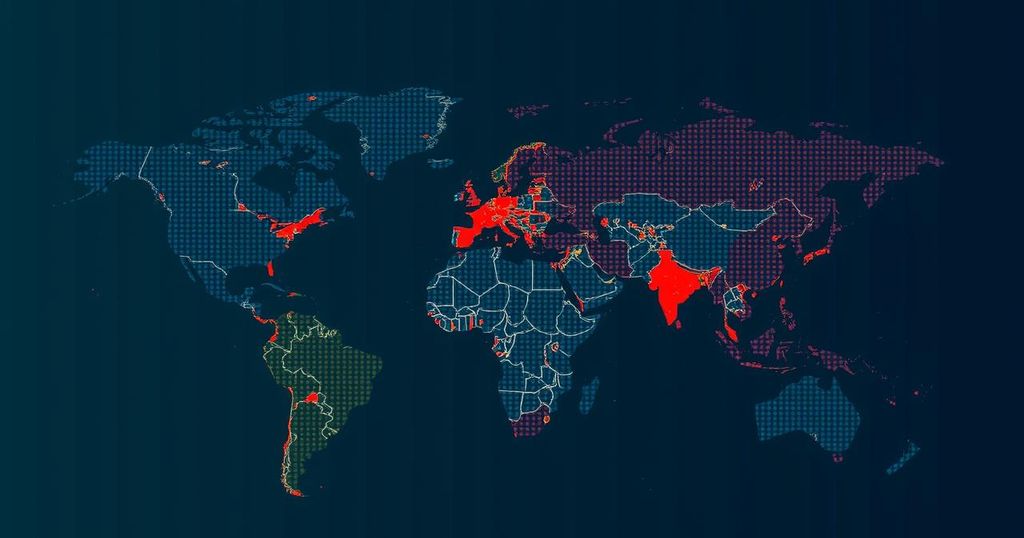The Freeman Spogli Institute hosted a panel discussing the compounding threats facing the world, featuring experts who delved into issues such as the erosion of democracy, the ongoing war in Ukraine, China’s rising influence, and climate change. Each scholar stressed the importance of understanding both internal and external threats and the need for concerted responses to safeguard democratic ideals and combat global challenges.
The Freeman Spogli Institute for International Studies (FSI) convened a distinguished panel to address pressing global threats during Stanford University’s 2024 Reunion and Homecoming weekend. Moderated by FSI Director Michael McFaul, the discussion featured prominent scholars including Marshall Burke, Didi Kuo, Amichai Magen, Oriana Skylar Mastro, and Steven Pifer. Each scholar presented insight on significant issues impacting the world today, including climate change, the Russo-Ukrainian war and its implications for Eastern Europe, the strategic maneuvers of China, the status of American democracy, and ongoing conflicts in the Middle East. Amichai Magen highlighted the emergence of an influential alliance comprising Russia, Iran, North Korea, and China, which seeks to challenge the established liberal international order. He expressed concern over the potential resurgence of historical norms where states risk disappearance due to conflict, mentioning Ukraine, Israel, and Taiwan as vulnerable states. Didi Kuo shifted the narrative by asserting that threats to democracies are often internal rather than external. She pointed to the erosion of democratic institutions by leaders who, having gained power through legitimate means, undermine electoral integrity and consolidate authority unilaterally. However, Kuo underscored that successful pro-democracy coalitions signify resilience in the democratic fabric. Steven Pifer countered prevailing narratives about the Ukraine conflict, affirming that though Russia has made some territorial gains, these have been at a staggering cost. He emphasized Ukraine’s resolve and the need for enhanced support to sustain its fight against aggression. Oriana Skylar Mastro cautioned against complacency regarding China’s influence, asserting that despite economic slowdowns, the country remains a formidable global player, necessitating a strategic U.S. response to maintain balance in international power dynamics. Marshall Burke concluded with an optimistic perspective on climate change progress, noting a decline in greenhouse gas emissions since 2005 due, in part, to legislative efforts such as the Inflation Reduction Act. Yet he acknowledged the necessity for further action as the world prepares for future climate challenges.
The contemporary global landscape is characterized by intricate challenges that intertwine various geopolitical, environmental, and sociopolitical dimensions. The discourse among FSI scholars sheds light on multiple aspects of this complexity, emphasizing the interplay of internal and external threats to democracy, the strategic expansions of global powers like China, and the pressing need for coherent strategies in response to climate change and military conflicts across the world.
In sum, the panel at the Freeman Spogli Institute elucidated essential insights into the multifaceted threats facing the international community today. From internal erosions of democratic systems to the swift maneuvers of authoritarian regimes, and the urgent clarion call for effective climate action, the scholars articulated a need for strategic vigilance and proactive measures to safeguard democratic values and address pressing global issues. It is crucial to remain cognizant of these challenges and to foster collaborative efforts toward durable solutions.
Original Source: fsi.stanford.edu






